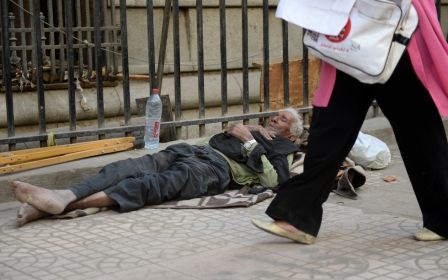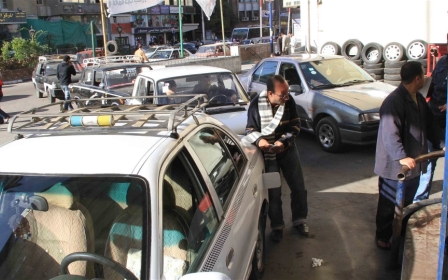Anger, ridicule in reaction to leaked Egyptian police monitoring plan

Social media users in Egypt have reacted with ridicule and anger to a leaked proposal by the country’s police force to develop a surveillance system for monitoring online criticism of the state.
The Ministry of Interior has called for technology companies to submit proposals for a system to scan Facebook, Twitter, WhatsApp and Viber for usage that may “harm public security or incite terrorism” including users who “mobilise protests, strikes and sit-ins”, according to leaked documents published in local daily al-Watan.
The Egyptian police force want the ability to view social media content within 30 seconds of publication, including the capacity to identify users who shape opinion and chart how opinions of specific users change over time, according to the documents.
Twitter users in Egypt have responded by using the hashtag “we’re being watched” (#احنا_متراقبين) to express derision and anger at the news. At least 60,000 tweets have been sent out in the past 24 hours, with thousands more comments generated every hour.
Interior Ministry officials have been quick to dismiss criticism of the move and insisted the surveillance system will be used to protect national security.
“It can’t be considered meddling in other people’s privacy,” Abdel-Fatah Osman, assistant interior minister for media, told a private Egyptian television channel. “We only want to keep an eye on people who make bombs to target innocent Egyptians."
Egypt has been in the grip of a prolonged and widespread crackdown against political opponents since a military coup removed the country’s first elected civilian president Mohammed Morsi from power last July. More than 1,000 people have been killed and over 40,000 imprisoned in relation to protests and criticism of the state, according to Egyptian monitoring group Wikithawra.
Plans to monitor online content are not new in Egypt, with documents looted from the intelligence services during the 2011 revolution revealing authorities had technology allowing them to hack electronic devices belonging to activists and journalists. During the three week uprising that led to the ousting of former president Hosni Mubarak, authorities also tried to stem the tide of online criticism by attempting to switch of the Internet and blocking mobile phone networks.
New MEE newsletter: Jerusalem Dispatch
Sign up to get the latest insights and analysis on Israel-Palestine, alongside Turkey Unpacked and other MEE newsletters
Middle East Eye delivers independent and unrivalled coverage and analysis of the Middle East, North Africa and beyond. To learn more about republishing this content and the associated fees, please fill out this form. More about MEE can be found here.



